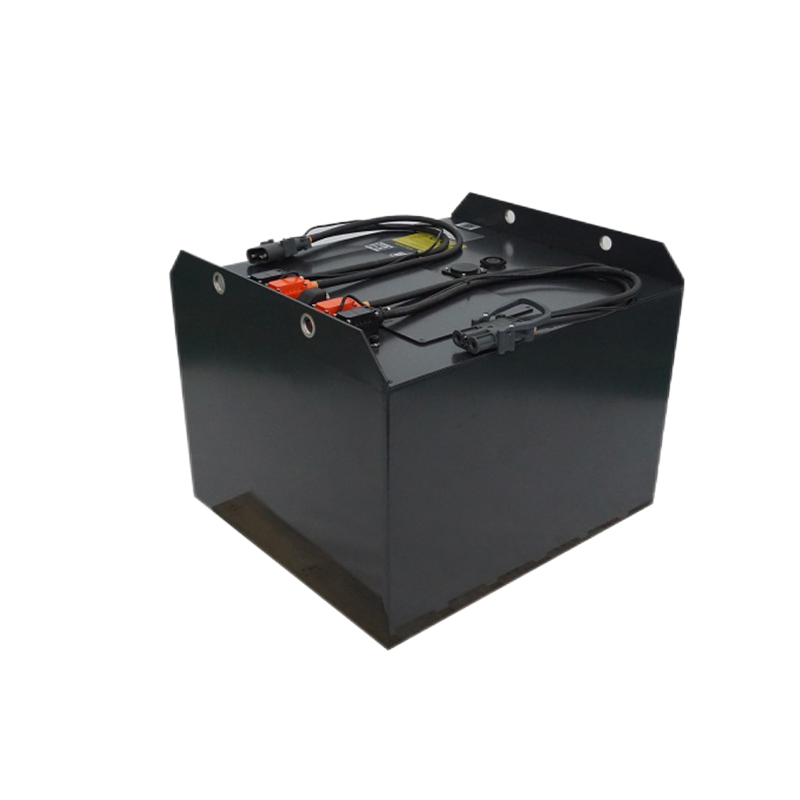The Advantages of Lithium Batteries for Forklifts: A Comprehensive Overview
Lithium batteries have gained significant traction in the forklift industry due to their numerous advantages over traditional lead-acid batteries. As electric forklifts continue to dominate material handling applications, understanding the benefits of forklift lithium batteries is crucial for businesses looking to optimize operations and improve efficiency.
One of the most notable benefits of lith
2025-08-27

Lithium batteries have gained significant traction in the forklift industry due to their numerous advantages over traditional lead-acid batteries. As electric forklifts continue to dominate material handling applications, understanding the benefits of forklift lithium batteries is crucial for businesses looking to optimize operations and improve efficiency.
One of the most notable benefits of lithium batteries is their superior energy density. Lithium technology allows for a compact design that provides a higher amount of power in a lighter package. This results in electric forklifts that can operate longer on a single charge, translating to extended operational hours and increased productivity. Businesses can experience fewer interruptions in workflow, as lithium batteries typically require less frequent charging compared to their lead-acid counterparts.
Moreover, forklift lithium batteries boast faster charging times. While traditional batteries may take several hours to charge fully, lithium batteries can be charged to about 80% in just under an hour. This rapid charging capability enables companies to incorporate opportunity charging, allowing forklifts to recharge during short breaks or shifts, thus maximizing uptime and overall efficiency.
Another critical advantage of lithium batteries is their longer lifespan. Lithium technology can provide more than twice the cycle life of traditional lead-acid batteries, resulting in lower total cost of ownership over time. With reduced need for replacement, businesses can allocate resources more effectively, enhancing their operational budget.
Lithium batteries also present safety benefits. They are equipped with built-in battery management systems that monitor performance and prevent overheating, reducing the risk of thermal runaway. Additionally, lithium-ion technology is not prone to the same degree of sulfation that can affect lead-acid batteries, leading to more reliable performance and safety in the workplace.
Environmental considerations are a growing concern for businesses across industries. Lithium batteries are more environmentally friendly than lead-acid batteries as they contain fewer harmful materials and are more energy-efficient. As companies strive to meet sustainability goals, adopting forklift lithium batteries can be a proactive step towards reducing their carbon footprint.
In conclusion, forklift lithium batteries provide compelling advantages, including enhanced energy density, rapid charging, extended lifespan, improved safety, and environmental benefits. As the industry continues to evolve, staying informed about these innovations will empower professionals to make informed decisions that drive efficiency, productivity, and sustainability in their operations. Embracing lithium battery technology could very well be a game-changer for businesses in the electric forklift sector, setting the stage for a more efficient future.
One of the most notable benefits of lithium batteries is their superior energy density. Lithium technology allows for a compact design that provides a higher amount of power in a lighter package. This results in electric forklifts that can operate longer on a single charge, translating to extended operational hours and increased productivity. Businesses can experience fewer interruptions in workflow, as lithium batteries typically require less frequent charging compared to their lead-acid counterparts.
Moreover, forklift lithium batteries boast faster charging times. While traditional batteries may take several hours to charge fully, lithium batteries can be charged to about 80% in just under an hour. This rapid charging capability enables companies to incorporate opportunity charging, allowing forklifts to recharge during short breaks or shifts, thus maximizing uptime and overall efficiency.
Another critical advantage of lithium batteries is their longer lifespan. Lithium technology can provide more than twice the cycle life of traditional lead-acid batteries, resulting in lower total cost of ownership over time. With reduced need for replacement, businesses can allocate resources more effectively, enhancing their operational budget.
Lithium batteries also present safety benefits. They are equipped with built-in battery management systems that monitor performance and prevent overheating, reducing the risk of thermal runaway. Additionally, lithium-ion technology is not prone to the same degree of sulfation that can affect lead-acid batteries, leading to more reliable performance and safety in the workplace.
Environmental considerations are a growing concern for businesses across industries. Lithium batteries are more environmentally friendly than lead-acid batteries as they contain fewer harmful materials and are more energy-efficient. As companies strive to meet sustainability goals, adopting forklift lithium batteries can be a proactive step towards reducing their carbon footprint.
In conclusion, forklift lithium batteries provide compelling advantages, including enhanced energy density, rapid charging, extended lifespan, improved safety, and environmental benefits. As the industry continues to evolve, staying informed about these innovations will empower professionals to make informed decisions that drive efficiency, productivity, and sustainability in their operations. Embracing lithium battery technology could very well be a game-changer for businesses in the electric forklift sector, setting the stage for a more efficient future.
Key words:
Related News


